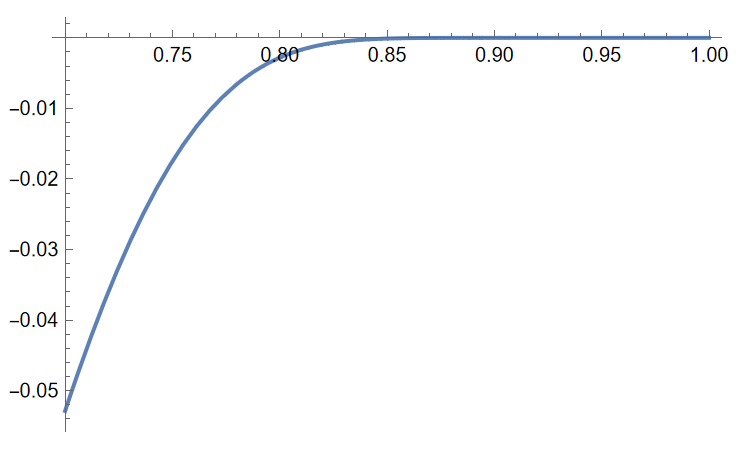Writing $x=e^{-a}$ for $a>0$ and then using the Poisson summation formula with $s(u)=e^{i\pi u} u^2 e^{-au^2}$ (in the notation of the Wikipedia article), we rewrite the sum in question as
$$G(a):=\frac12\,\sum_{k=-\infty}^\infty g_a(k),$$
where
$$g_a(t):=\int_{-\infty}^\infty s(u)e^{-2\pi itu}\,du
=\frac{\sqrt{\pi } \left(2 a-\pi
^2 (1-2 t)^2\right)}{4 a^{5/2}}\,
e^{-\pi ^2 (1-2 t)^2/(4 a)}.$$
Letting now $a\downarrow0$ (which corresponds to $x\uparrow1$) and using dominated convergence, we get $G(0+)=0$. $\quad\Box$
It also follows that the convergence of $G(a)$ to $0$ as $a\downarrow0$ (or, equivalently, as $x\uparrow1$) is very fast, faster than that of any power of $a$ (or, equivalently, than that of any power of $1-x$). This corresponds to what we see in the picture in the OP.

